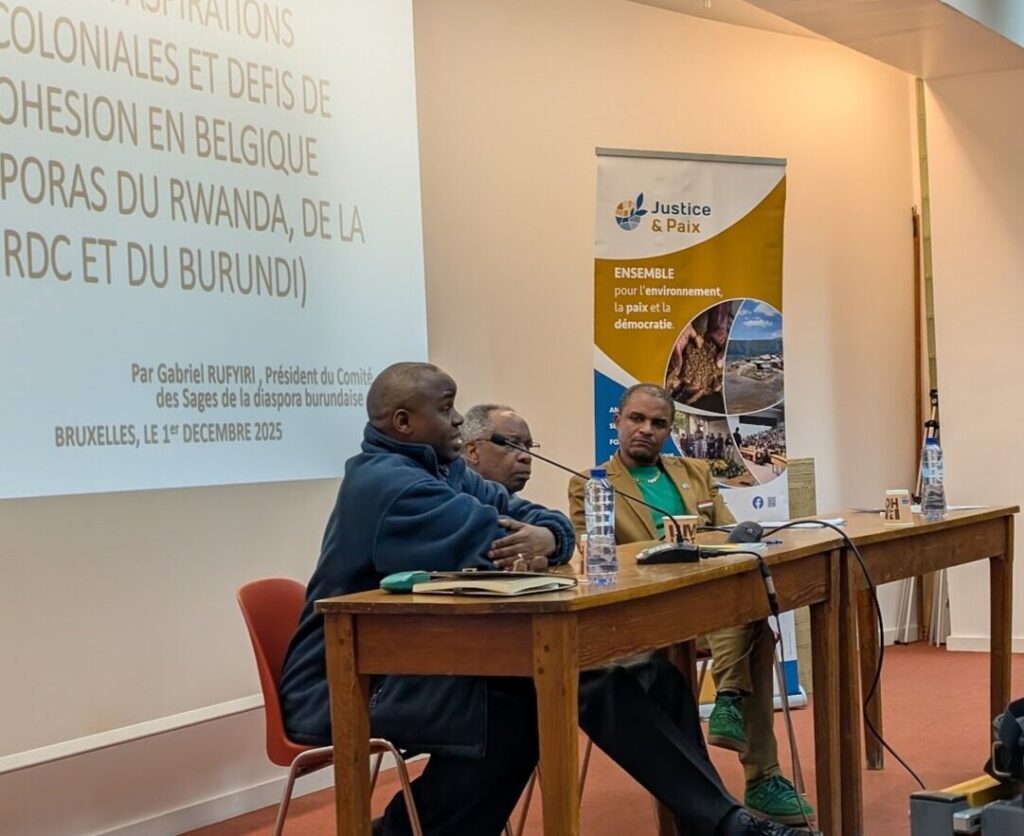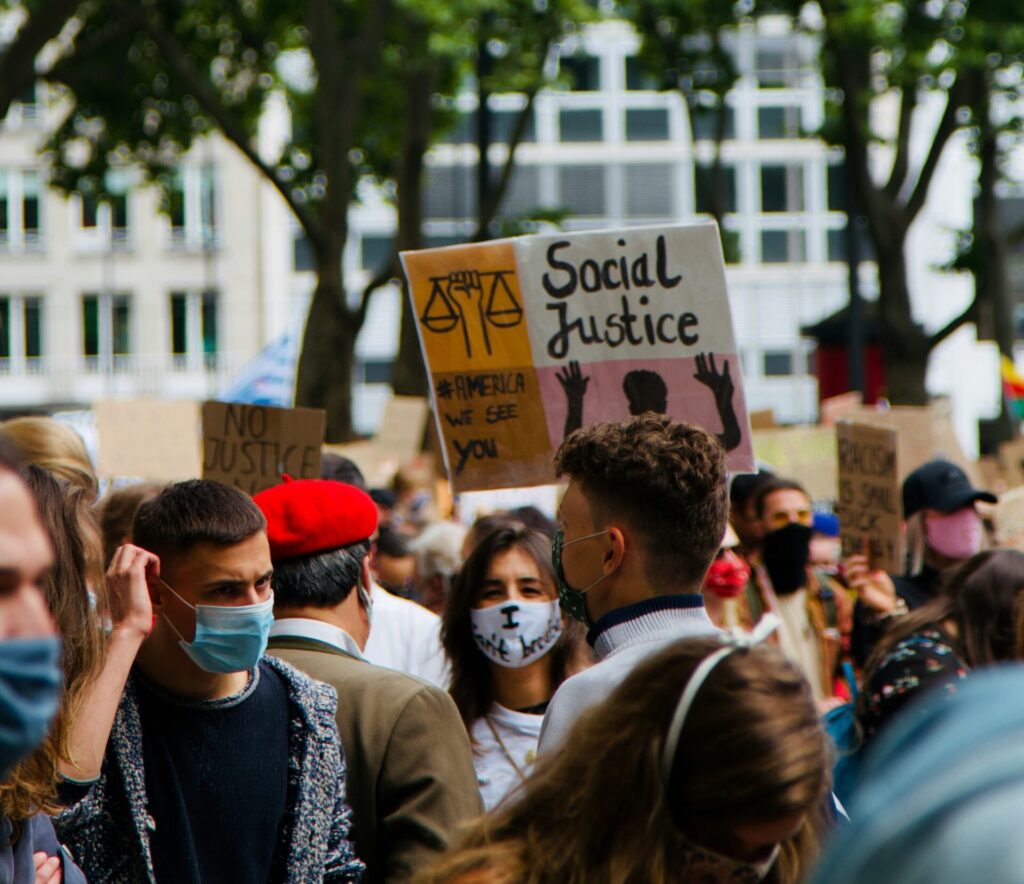Reconciliation constitutes one of the main issues when addressing security issues in the Democratic Republic of Congo. Through different recommended approaches, we will attempt to present this issue.

Reconciliation constitutes one of the main issues when addressing security issues in the Democratic Republic of Congo. Through different recommended approaches, we will attempt to present this issue.
On the occasion of his ten-day trip to Belgium to treat his back, the President of the Democratic Republic of Congo (DRC), Félix Tshisekedi had the opportunity to speak with Colette Braeckman, journalist specializing in Central Africa at the International Evening Service. During this interview, the president expressed his vision regarding the resolution of security problems in his country, which has been subject to conflicts for several decades now. Faced with demands from civil society organizations for UN intervention in the search for justice in the DRC, the Congolese head of state declared: “I don't think it's up to the UN to do it. We must equip ourselves with the means to do so. The UN, of course, can support us with its expertise, its experts, its documents, to help us trace the criminals […] I do not think that this could distort our relations with neighboring countries. My vision is that we must draw a line under the past, live together […] However, I believe that, to pacify minds, to reconcile them, we must help shed light on what happened and this is up to Congolese justice to do, but it will have to be helped. This would be a great moment of progress towards lasting peace in the region ". Concomitantly with this release in the press, the 2018 Nobel Peace Prize, Dr Denis Mukwege reacted via his social networks, declaring: “The international and internationalized dimension of the conflicts in the Democratic Republic of Congo must lead to an international and internationalized response from justice. We cannot draw a line under the past, turn a dark and tragic page without doing justice, telling the truth, granting reparations and guaranteeing the non-repetition of atrocities. These are essential prerequisites for reconciliation and living together. There will be no lasting peace without justice ". This exchange challenges us about a banal, but so rich, concept: reconciliation. What do we mean by the latter? Can we really draw a line under the past for lasting reconciliation? Perhaps we should implement elements beforehand as Dr. Mukwege suggests? In other words, are there conditions for reconciliation and if so, what are they? Furthermore, if there must be reconciliation, who is concerned, who must be involved? Here are the questions that will interest us throughout this analysis dealing with reconciliation in the Democratic Republic of Congo, a theme that is often overused, but oh so preponderant!
Reconciliation is a fairly common term that everyone can use in daily life after a conflict or argument. Along with this, this same term also denotes an essential concept in post-conflict theory. Indeed, in this theoretical framework, the term “reconciliation” means the construction of a society where former enemies can live together, where they can regain mutual trust, where they can overcome a past. conflictual and move towards a common future. Ultimately, it is about creating a framework for peaceful interactions that prevents the recurrence of past conflicts. In this context, it is essential to understand that reconciliation is seen as a process. We are indeed talking about reconciliation processes, because their temporalities are likely to extend over several generations. This is why, although reconciliation is a concept attached to a post-conflict situation, it can be initiated before a total ceasefire as it will take time. Reconciliation cannot be achieved with the snap of a finger! Furthermore, when we talk about reconciliation, two elements must be highlighted:
First, reconciliation is plural. It is part of an extremely broad continuum with extensive possibilities. Although it is based on fundamental pillars, which we will discuss later in this analysis, it is entirely conceivable that reconciliation manifests itself differently depending on the perspective of each person. It can actually appear in the form of financial reparations, symbolic gestures, legal decisions, etc.
Second, to have a successful reconciliation process, it is essential to understand what happened. However, we must not only focus on the past. Indeed, it is also crucial to look to the future, otherwise the process risks stagnating. So we are left with the question: “What happened?” » ; but rather in front of “how are we going to move forward with what happened?” ". This question then suggests, on the one hand, a re-evaluation of the representation of the one we consider to be the other, but also of oneself and on the other hand, a re-evaluation of the common past. These reassessments are facilitated by the three fundamental pillars of the reconciliation processes that we mentioned previously, that is to say: knowledge of the truth, the search for justice and reparation and the construction of a common memory.
At first glance, the vast majority of political or opinion leaders seem to agree on the importance of these three pillars. However, frictions and disagreements can appear quite quickly when we are interested in the approaches adopted in the execution of these pillars.
If we return to the case regarding the disagreement between President Félix Tshisekedi and Dr Mukwege, it is fundamentally a disagreement over implementation approaches. If we analyze pillar by pillar, we see that the approach recommended by President Tshisekedi regarding the construction of a common memory is similar to what is called obliteration the past.
Indeed, by declaring that it would be necessary “draw a line under the past», his remarks seem to be part of this method of memory management. This is also called “memory against oneself” as if the memories were confiscated. As in a sort of repression phase after a trauma, this approach seeks to forget/delete the past of his memory to protect himself, rebuild himself and continue to live (together). In this approach, the visible aspects of reconciliation, such as internal order, social peace and the recomposition of a wounded national identity, etc., take precedence over the rest. Ironically, this way of dealing with the past tends to draw a line under the search for truth and the search for justice. For the first, the desire to erase the past makes all investigative projects to establish the veracity of the facts obsolete. In this way, obliteration ignores the recognition of the status of victims and thus places the executioners and the victims on the same equal footing. This phenomenon facilitates the competition of memories, thereby producing a real risk of a resumption of a conflict.
Indeed, obliteration is very likely to lead to these consequences, because it encourages victims or other groups whose memory is ignored, to enhance their memories, that is to say to adopt a mode of management of the past focused on an obsession with memory, also called “memory against the other”. In this approach, the communities, whose memory attempts to be erased, then reappropriate and rewrite history, mixing fiction and reality, to maintain an identity threatened by the project of obliteration. However, overvaluation does not only manifest itself in response to obliteration, but is often politically exploited as a strategic element of popular rallying and as a means of creating a cult of personality for and by heads of state or leaders. cultural[1].
Concerning the search for justice, through the illusion of reconciliation that is obliteration, the elements of justice often find themselves denied, due to not being able to be based on true facts. This is how this memory management strategy tends to encourage impunity. In our case, the search for justice is all the more called into question by the insistence of the presidency on basing the judicial pole of reconciliation on the framework of Congolese justice. President Félix Tshisekedi once again seems to be opting for a controversial direction in relation to this: “we must help shed light on what happened and it is up to Congolese justice to do so, but she will have to be helped". However, some, like Dr Mukwege, question this strategy, particularly because Congolese justice suffers from ills and shortcomings which increase, even more and significantly, the risks of impunity. Even recently, Musa Nzamu Jonathan, Legal Defender at the Uvira High Court and responsible for Monitoring, Evaluation and Learning at the Anti-Corruption Research Center, affirmed that “Congolese courts are renowned for rendering verdicts favorable to the highest bidders ". Furthermore, reconciliation and justice are not only a Congolese affair, but it involves several other countries, notably Rwanda or even Uganda. Thus, we see one aspect of the complexity of the situation, particularly because several of the countries concerned reject any involvement in the conflicts in the DRC. These conclusions therefore fundamentally contest the presidency's project to compartmentalize the legal processes of reconciliation to Congolese justice and instead invite reliance on a hybrid system from the genesis of the process.
In view of this analysis, we are better able to understand the diametrically opposed position of Dr. Mukwege. Faced with these observations, it seems essential to us to encourage the Congolese population, whether local or diasporic, to demand a clear position from the Congolese presidency in favor of working on memories. The latter is crucial to facilitating the reconciliation process. In fact, the work of memories, also called “memory with the other”, invites the taking into account of a plurality of points of view. In this approach, through initiatives to show the desire to take into account the experience of others, to recognize a past of common suffering, the former enemies undertake a rereading of their past which brings them closer together in order to restore mutual trust. by preventing the appearance of antagonistic memories. Based on the idea that a common future is not only desirable, but also possible, this mode of management of the past seeks to act on perceptions of the past to put into perspective the animosity and resentment generated. Thus, the meaning of events is reworked with a view to opening areas of cooperation and writing a common story. However, this approach is absolutely not a panacea. It is based on high and complex ambitions to achieve while remaining realistic, because it admits that recognizing the experience of others does not require adhering to it completely. In this sense, it recognizes that certain disagreements may indeed persist. The work of memories therefore attempts to promote the reconstruction of the links which have been broken between the parties involved and to contribute to their rapprochement in a lasting manner. In other words, it is about finding a common language about the past, in order to “make peace with the past”.
Peace, is this not the horizon desired by everyone for the Democratic Republic of Congo? Is this not one of the values that Belgium and the European Union want to defend? It is therefore high time to match words with deeds and demand concrete actions from our political leaders. In this sense, we encourage everyone to become catalysts for change by supporting the campaign in particular #JusticeForCongo which urges everyone to challenge their politicians, at the national and European level, by asking them the concrete actions they intend to take in the face of this situation or to join the “Plea for a holistic national strategy for transitional justice in the DRC » led by the Nobel Peace Prize winner, Dr Mukwege and numerous Congolese civil society organizations active in the fight against impunity, essential for true reconciliation.
Emmanuel Tshimanga.
[1] For further : http://usagespublicsdupasse.ehess.fr/memoire-oubli-et-recuperation-de-la-memoire-historique-de-la-guerre-civile-espagnole/ Or https://www.cairn.info/revue-les-cahiers-portalis-2016-1-page-33.htm



